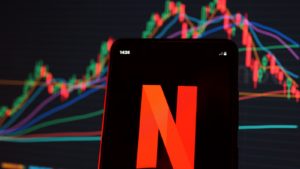Many stocks that are flying high right now are flashing warning signs that some investors ignore at their own peril.
Other stocks on the downslope are likely to continue sliding lower as their operations, earnings, and sentiment toward their shares worsens. While timing the overall market is difficult, it’s much easier to see when it might be time to get out of a stock position. This happens if its share price has peaked or shows underlying fundamentals that have turned for the worse.
Beware of these three momentum stocks waving massive red flags right now.
Tesla (TSLA)

A new report from short-selling research firm S3 Partners indicates that electric vehicle maker Tesla (NASDAQ:TSLA) is the most widely shorted automotive stock on Wall Street.
Short sellers are betting $22 billion that Tesla’s stock price will move lower within the next three to 12 months, according to data from S3 Partners.
Almost 3% of Tesla’s stock is currently sold short. This is higher than the average short position in most stocks, especially one such as Tesla that has a market capitalization approaching $1 billion.
Even more incredible is the fact that bets against Tesla on Wall Street are nearly 10 times greater than the second most heavily shorted vehicle stock, Rivian Automotive (NASDAQ:RIVN). Its share price has fallen 83% since its market debut in November 2021.
The third most shorted auto stock, Ford Motor Co. (NYSE:F), has less than $2 billion of short bets against its share price. The short bets, which are traders and investors wagering that the stock price will fall, should be seen as a big red flag for investors right now.
TSLA stock continues to trade in volatile patterns. While the company’s share price is up 138% year to date (YTD), it is currently trading 15% lower than where it was a year ago.
Netflix (NFLX)

Shares of streaming giant Netflix (NASDAQ:NFLX) fell more than 5% recently after the company’s CFO Spencer Neumann spoke at an NYC conference.
Neumann effectively lowered Netflix’s forward guidance for the current Q3. He stated the company’s operating margins are likely to be lower than expected. The CFO warned investors that the new advertising business was not yet material to overall revenue. Additionally, he reported that Netflix has no plans to acquire the rights to live sporting events.
Neumann’s comments sent NFLX stock spiraling lower. The share price was already under pressure from the Hollywood writers and actors strike that’s been ongoing for more than 100 days. The Netflix’s CFO is forecasting operating margins in the 18% to 20% range, below the consensus estimate of 22% among Wall Street analysts.
Unfortunately, this only hurt sentiment towards the streaming company’s stock, which is now considered volatile. While the share price is up 30% this year, it has only gained 3% over the past five years.
Walt Disney Co. (DIS)

The Mouse House can’t seem to do anything right lately. Sentiment towards Walt Disney Co. (NYSE:DIS) just seems to be getting worse as its share price slides lower.
Recently, the company announced ambitious plans. That includes doubling the amount it invests in its theme parks over the next decade, spending nearly $60 billion to update and expand its attractions and cruise lines around the world. Investors responded to the news by dumping more of DIS stock, which is now down 19% over the last 12 months and down 30% through five years.
Analysts and shareholders have been calling on Disney CEO Bob Iger to sell the company’s legacy media assets. Those include the ABC television network and specialty channels such as National Geographic. They are losing advertising dollars to streaming platforms and have become a drag on the business.
But even here, Disney is struggling. Rumors circulate that Disney is likely to get $10 billion for ABC and its TV affiliates, about half the $19 billion the company paid for the network nearly 30 years ago.
On the date of publication, Joel Baglole held a long position in DIS. The opinions expressed in this article are those of the writer, subject to the InvestorPlace.com Publishing Guidelines.
